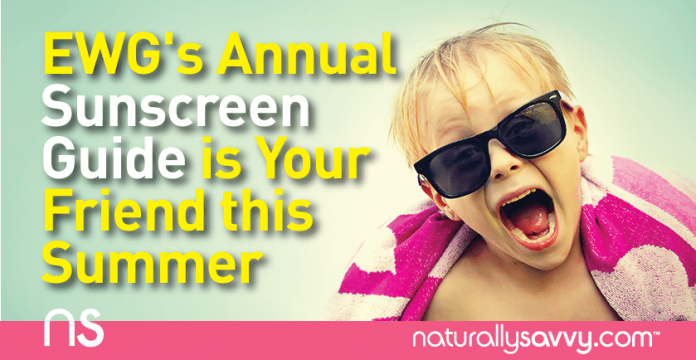
Skin cancer is the number one cancer in the U.S., which makes protecting ourselves from the sun's damaging rays a priority. It can be hard to navigate through the maze of sun protection products on the market. Enter the Environmental Working Group's (EWG) Sunscreen Guide. This guide is the environmental group's guide to the safety and efficacy of more than 1,400 sunscreens, lotions, lip products and make-ups with sun protection claims.
Read More: 6 Tips for Healthy Summer Skin
The EWG researchers found that only 25 percent of the products on the market this year offer strong and broad UV protection, and have few safety concerns. The organization recommends four things you should not use:
1. Avoid sprays. They could have serious inhalation risks and may not fully cover skin. About one in four sunscreens in the EWG's database is a spray.
2. No super-high SPFs (above 50+). They provide little extra skin protection. About one in seven sunscreens have an SPF value over 50+.
3. No vitamin-A (retinyl palmitate). It could speed the development of tumors and lesions on sun-exposed skin. Retinyl palmitate is added to almost one in four SPF-rated sunscreens.
4. No oxybenzone. This commonly used ingredient gets into the bloodstream and acts like estrogen in the body. It can also trigger allergic reactions. Almost half of all beach and sport sunscreens in EWG's 2016 guide contain oxybenzone.
In addition to what not to use, senior research analyst at EWG, Sonya Lunder, recommends what you should do to protect yourself:
"The best advice for concerned consumers is to use sun-protective clothing, stay in the shade to reduce intense sun exposure and schedule regular skin examinations by a doctor," Lunder said. "And turn to EWG’s guide to find the best sunscreens for skin that isn’t protected by clothing."
For more information, please go directly to the Environmental Working Group's site to access The EWG Annual Sunscreen Guide.
Editor's Note: We absolutely love the organic, non-toxic sunscreen and skin repair from our partner Goddess Garden.










